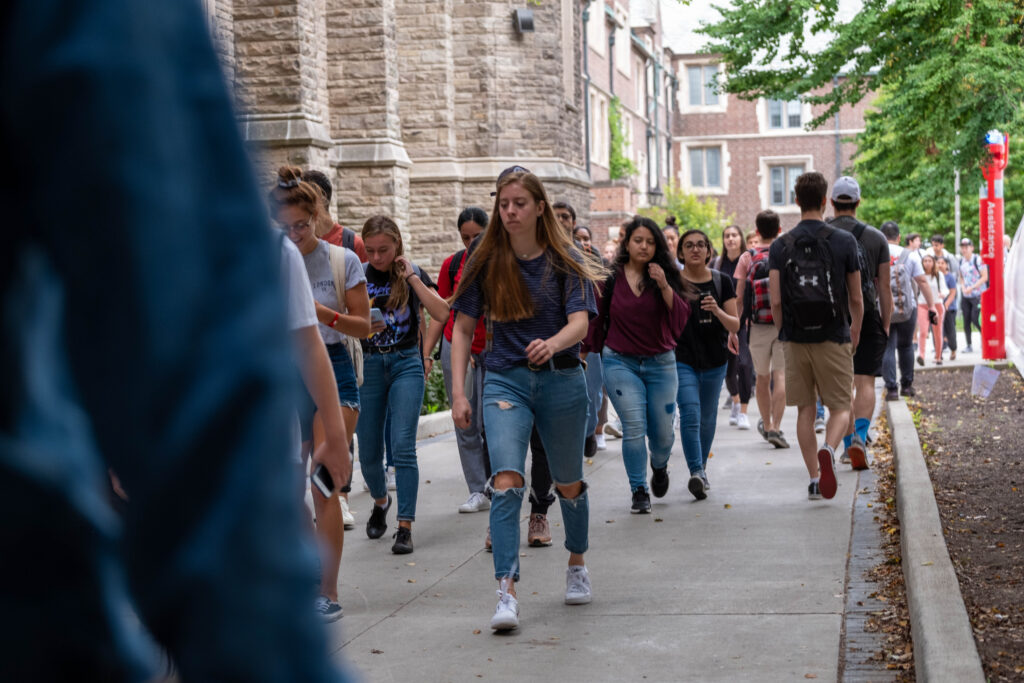Why study Humanities

As a Humanities student, you’ll bring artistic, historical, critical and philosophical reflection to bear while you explore and examine our past and present, our thought, our cultures, and societies, as well as our existence. You’ll learn about the world and learn about yourself.
- Gain knowledge and learn to question.
- Grapple with how to make sense of experiences, how to achieve understanding, and how to live well.
- Learn how to think, inquire, weigh evidence, read critically, make arguments, write and speak thoughtfully.
- Practice the skills you learn in the classroom, lab, theatre and studio through community engagement, international experience, field study and internships
“The unexamined life is not worth living” – Socrates.
Information Box Group
Humanities grads are needed now more than ever. The world needs people who have these essential skills.
Think critically
Lead change
Exercise social and emotional intelligence
Communicate effectively
Think ethically and make a difference
Humanities during a time of global change
Why should humanities education persist in an AI age? Self-development, to start Read article
At their best, the humanities are a laboratory to cultivate essential skills for critically assessing the status quo and imagining better alternatives in both political and economic life.
AI Isn't the Next Big Thing, Thinking Is Read the article
AI is a remarkable tool, and its capacity to reshape our world is real. Yet as we adopt these technologies, we must remain the authors of our own thoughts. AI isn’t the next big thing, thinking is. It’s the human mind—educated, curious, and morally grounded—that will define the future.
Humanities provides career benefits Read the article
Oxford study: Humanities benefits young people’s future careers and wider society. New research shows how studying the humanities benefits young people’s future careers and wider society – despite challenges of COVID-19 and employment changes.
Testimonials
McMaster Humanities grads go on to do great things, big and small, world changing and community improving, and here are just a few of them to tell us what they have done with their degrees.
Careers
Employers across Canada and around the world choose Humanities graduates because of their adaptability, flexibility, empathy and critical thinking skills — essential knowledge in the 21st-century workplace.




